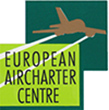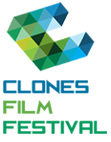There are many critics when it comes to talk of reviving the Irish language. Kevin Myers (who has his own critics, but a lot of supporters too) for instance described it as “redundant to Irishness”. What was the main reason you wanted to bring this this show to Irish audiences?
I don't think being able to speak Irish makes you more ‘Irish’. But the language is unique to us. It’s an undeniable part of our heritage. That is irrefutable. And I think that a lot of people, who don't speak the language, would love to have the licence to use the Irish they have, however much or however little that is. And for many that's possibly a first step in re-engaging with the language and hopefully taking it further in due course. I think a lot of people have a latent sense of pride in the language and we were trying to tap into that in this series. We were not targeting fluent speakers (although they had a part to play) and nor were we targeting naysayers. We were targeting people who prefer to say ‘Sláinte’ rather than ‘Cheers’, people who like the idea of the language but for whatever reason just never use it.
What do you say to critics such as Kevin Myers?
People have very strong views about the language, good and bad, but very rarely indifferent. I think the world needs people like Kevin Myers. It would be easy to dismiss him as a professional curmudgeon but he challenges conventional thinking, which is always a good thing in my book. His view of the Irish language is perfectly valid but it doesn't wholly match my view. I say to Kevin Beir Bua!
What does the Irish language mean to you?
I had a wonderful Irish teacher when I was in secondary school - Johnny Broderick - who put huge emphasis on us speaking the language, arguing in Irish, thinking in Irish. However he did it, he just made me appreciate the language. Irish was not a drag in school. I'm not a fluent Irish speaker but I have always retained my appreciation of the language and its uniqueness to us. And yet I rarely used my Irish in my adult years. I would not have the confidence to use my limited Irish around fluent speakers - and this was a big motivation for the series - encourage people like me to use it.
‘Bernard Dunne’s Bród Club’ is the only nominee in the Special Irish language category that wasn’t broadcast on TG4, but rather aired on RTÉ. Is it more difficult to get Irish language shows broadcast on RTÉ than English language shows?
In the current environment getting any shows broadcast in RTÉ is difficult! Obviously RTÉ has significantly less slots for Irish language programming and they have a very strong production unit themselves. But I think really good ideas will somehow win through, and that goes for programmes in either language.
If the show had have been entirely as Gaeilge, do you think RTÉ would have commissioned it?
RTÉ bought into the idea that the series had to communicate with an audience that was not fluent and indeed might have little or no Irish. Pragmatically that was often much better done through English. The intention was to motivate people, not to alienate them further. Commissioning editor Kevin Cummins was a collaborator and a champion and really understood what we were trying to do.
What, in your opinion, are some of the challenges facing Irish language shows in Ireland?
There are brilliant Irish language programmes being made in this country but many are not being watched in significant numbers. I think that's a travesty. There are of course many challenges beyond that - the limited mass of people who speak the language; budgets etc; but they can be overcome to greater or lesser extents. But overall, I would love to see more people watching the great programmes that are being made.
Irish language shows cater for a niche market; albeit 1.77m people; is this taken into account when funding decisions etc are made?
The whole point of this series was to take the language out of that niche and I think it was that attitude that actually helped get this funded. The BAI were key funders along with RTÉ but Foras Na Gaeilge were also very important, not just for the money they put in but because they saw the value of targeting a new constituency of Irish language supporters.
‘Bernard Dunne’s Bród Club’ had a number of well-known faces participating in the cause. How did you get them on board?
Bernard himself led the way. Here was a guy who failed Irish in school but felt so strongly about the language decided to go away and begin learning it again. Almost everyone has an Irish language story and the mere mention of the Irish language provokes or evokes something. So getting people on board was not hugely difficult. People wanted to either tell their stories or just say yes, I care about the language. Musical highlights included performances by Republic of Loose, Declan O Rourke, Delerentos and Ryan Sheridan and the Dublin Gospel Choir singing U2's ‘I Still Haven't Found What I'm Looking For’ as Gaeilge. Celebrities included radio presenters Tom Dunne and Ray Foley, television presenters Brendan Courtney, Charlie Bird and Pamela Flood, comedian PJ Gallagher, businessman Ben Dunne, footballer Paul McGrath, singer Brian Kennedy, journalist and playwright Fiona Looney. Fiona coined the phrase ‘Get Back On The Capall’ which developed into a slogan for the series and was emblazoned on t-shirts specially designed for the series and sold at cost price.
Corporate supporters included Bank of Ireland who ran a series of Fáilte Fridays in their banks nationwide, Irish Pride who changed their packaging on their Big Toast pan to Tósta Mór for the duration of the campaign, Bravo Outdoor Advertising who gave the show thousands of euros worth of billboard space for the major outdoor advertising campaign. Dublin Bus provided 500 in-bus advertising panels and Bus Eireann also gave the campaign advertising space on the backs of 3 of their busses.
Did you expect the phrase ‘Get back on the capall’ to take off as freely as it did?
We have Fiona Looney to thank for this phrase. For me it just captured what we were about. It was lighthearted and fun, married English and Irish and encouraged people to give it a go. 25,000 people got back on the capall!
Did the show reach your 100,000 goal?
We set the bar high. We were looking for 100,000 new supporters of the language. We didn’t get 100,000 people signed up but did manage to build a real community of like-minded people who all committed to the campaign to use whatever Irish they have. 25,000 people signed up and we continued to communicate with them after the series aired through online newsletters, through email and through social media. We believe that we created something real with this series and we left a mark.
We may not have started a revolution but for a fair proportion of the public we created a new relationship with the Irish language. For them the campaign reignited a pride in their native teanga and for some changed everyday conversation and social interactions. Be it a ‘slán go fóill’ to the bus driver, or a ‘caifé beir leat’ in the coffee shop at lunchtime, the campaign removed the fear-factor and left the door open for people to start using what Gaeilge they had, fearlessly, daily. It inspired others to take their learning of the language further than the classroom of their past and assisted in them making a conscious effort to expand their vocabulary and not be afraid to ask, Cad é an Ghaeilge ar sin le do thoil?
What would winning the IFTA for Special Irish Language mean?
This campaign and this series was about the Irish language and really sought to create a whole new community of supporters of the language. The award would validate our view that the Irish language is held in high esteem by more people than we think - and that many will re-engage with it if the rules of engagement allow them to.
See more IFTA Focus Q&A's below:
'Congo: 1961'
'Lón sa Spéir'
'Rásaí na Gaillimhe'
Element Pictures







